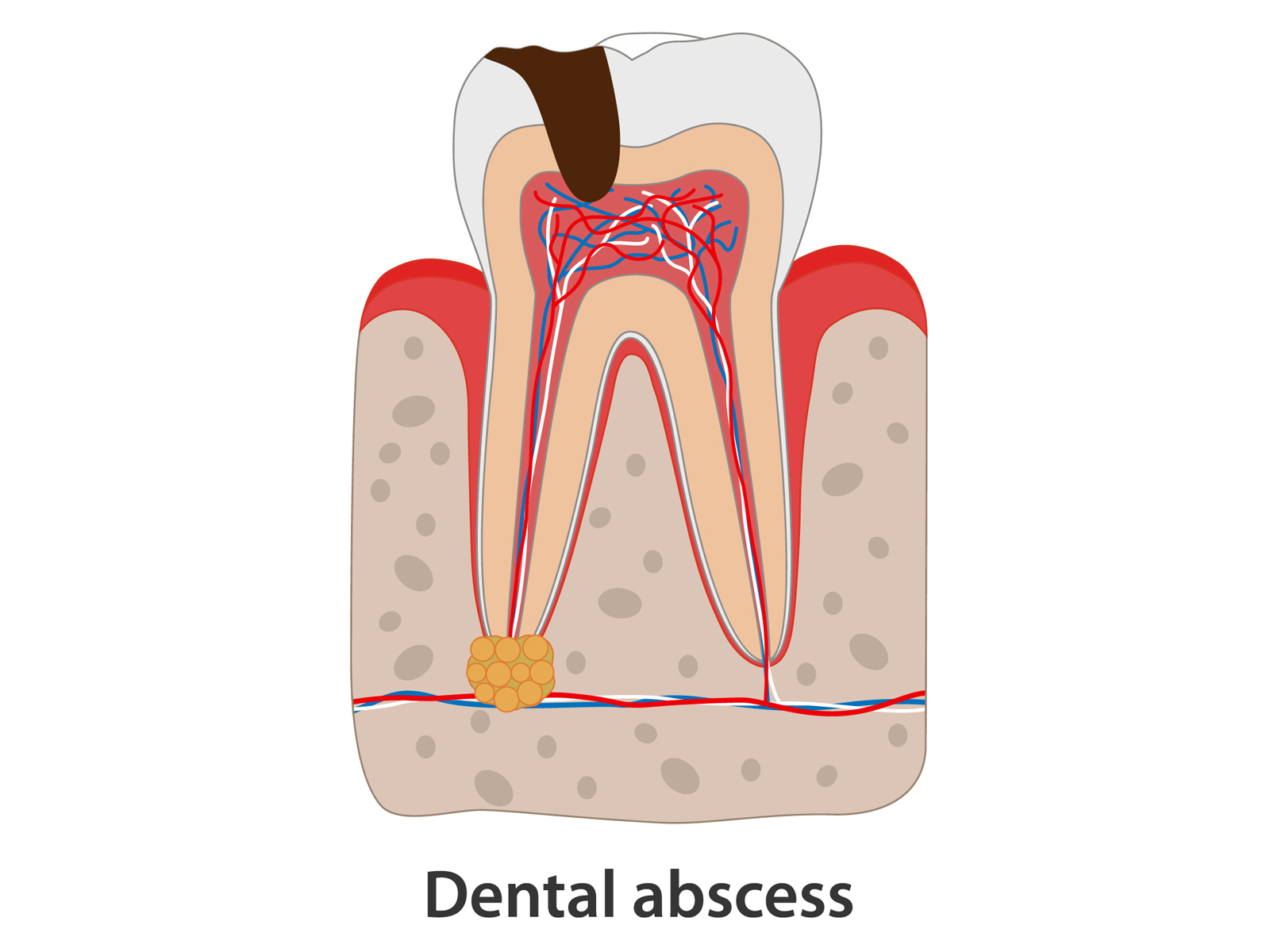Introduction
Welcome to Krishees Multispecialty Dental Clinic, where we embark on an in-depth exploration of dental abscesses. In this comprehensive guide, we’ll leave no stone unturned as we unravel the causes, symptoms, treatment modalities, and preventive measures for this common yet often misunderstood dental condition.
Understanding Dental Abscess
Definition:
A dental abscess is a localized collection of pus resulting from a bacterial infection within the tooth or gums.
Causes dental abscess:
Untreated Cavities: As cavities progress, they can lead to infection within the tooth.
Gum Infections: Periodontal disease creates pockets of infection, contributing to abscess formation.
Trauma: Injuries to the teeth, if not addressed, can expose them to bacterial invasion, initiating the abscess.
Who is at Risk?
Smoking:
Individuals who smoke face a twofold increase in the likelihood of developing tooth abscesses. The chemicals in smoke can compromise the immune system and hinder the body’s ability to fight infections.
Dry Mouth (Xerostomia):
Reduced saliva levels create an environment where bacteria thrive. Medications, certain medical conditions, or lifestyle factors contributing to dry mouth can increase the risk of abscess formation.
Poor Oral Hygiene:
Inadequate brushing and flossing create a breeding ground for bacteria, fostering cavities and gum infections, which can progress to abscesses.
Untreated Cavities:
Neglecting regular dental check-ups allows cavities to progress, significantly heightening the risk of abscess formation. Prevention is key through early detection and treatment.
Compromised Immune System:
Diseases such as diabetes, or medications that weaken the immune system, make individuals more susceptible to infections, including dental abscesses.


Symptoms of Dental Abscess:
Toothache:
Your Description: Gnawing or throbbing, sharp or shooting, continuous, or only when chewing.
Additional Detail: Often throbbing and persistent, the pain may worsen with chewing.
Radiating Pain:
Your Description: Radiating to your jawbone, neck, or ear.
Additional Detail: The pain may radiate to the jawbone, neck, or ear.
Tooth Sensitivity:
Your Description: Tooth sensitivity to hot or cold temperatures.
Additional Detail: A common symptom, particularly sensitivity to hot or cold substances.
Taste and Breath Issues:
Your Description: Bitter taste in your mouth, bad breath (halitosis).
Additional Detail: In advanced stages, the abscess may discharge pus, leading to a foul taste in the mouth and bad breath.
Gum Issues:
Your Description: Gum redness and swelling, loosening of the affected tooth, swollen area in your upper or lower jaw, an open, draining sore on the side of your gums.
Additional Detail: Swelling and redness, loosening of the affected tooth, and the presence of an open, draining sore are all signs of gum involvement.
Generalized Symptoms:
Your Description: Fever, swollen lymph nodes, general discomfort, uneasiness, or ill feeling.
Additional Detail: These are more generalized symptoms that may accompany a dental abscess, indicating a systemic response to the infection.
Seeking Professional Help
Timely action is essential to halt the progression of infection and avert potential complications. Treatment options include drainage, root canal therapy, antibiotics, and pain management.
FAQs about Dental Abscess
Q1. Can dental abscesses go away on their own?
A1. No, dental abscesses require professional treatment. Without intervention, the infection can spread and lead to serious complications.
Q2. Are dental abscesses preventable?
A2. Yes, maintaining good oral hygiene, attending regular dental check-ups, and addressing cavities promptly can significantly reduce the risk of abscess formation.
Q3. Is a dental abscess a dental emergency?
A3. Yes, dental abscesses should be treated promptly. If you experience severe pain or swelling, seek immediate dental care to prevent the infection from spreading.
Preventive Measures
Regular dental check-ups, consistent and thorough oral hygiene practices, and lifestyle modifications, such as quitting smoking, are essential in preventing dental abscesses.
Conclusion
Armed with a comprehensive understanding of dental abscesses, you now possess the knowledge to prioritize your oral health. Remember, early detection and intervention are paramount. For personalized guidance and professional care, don’t hesitate to reach out to Krishees Multispecialty Dental Clinic.

Leave a Reply